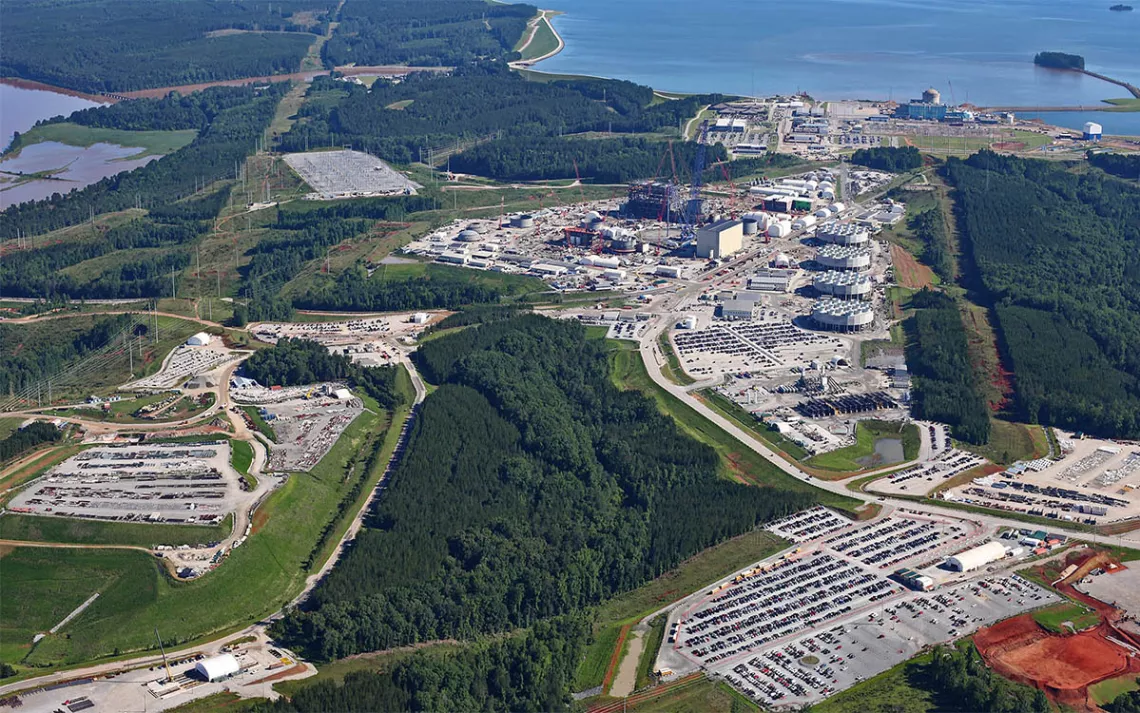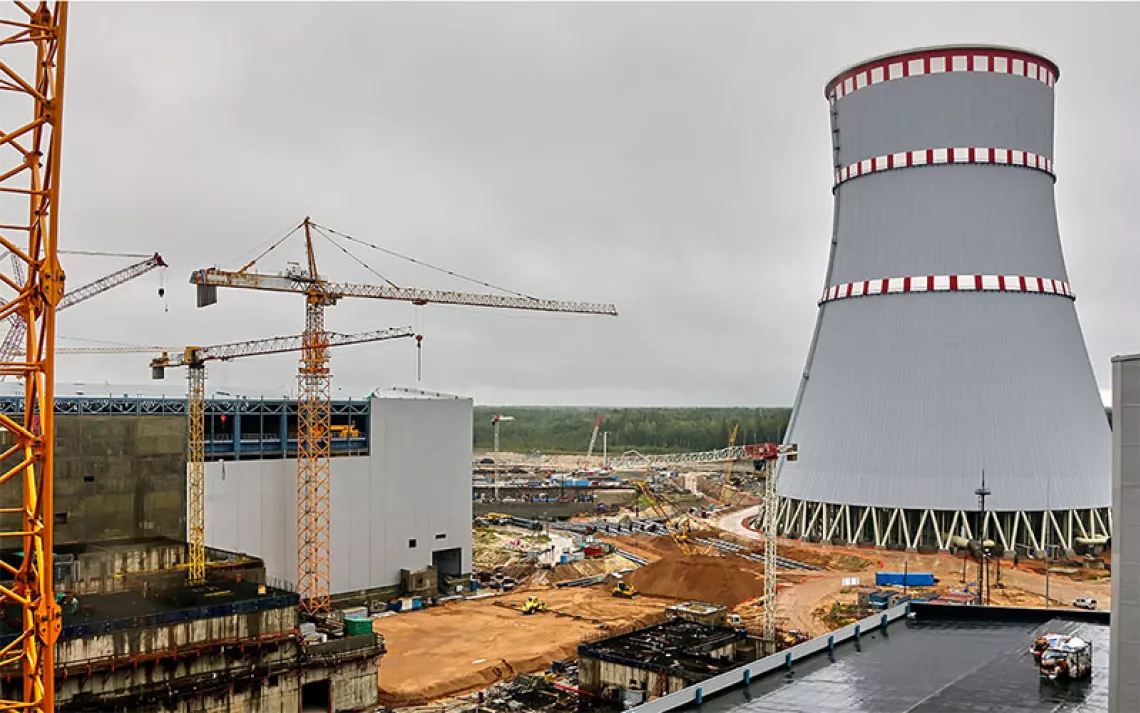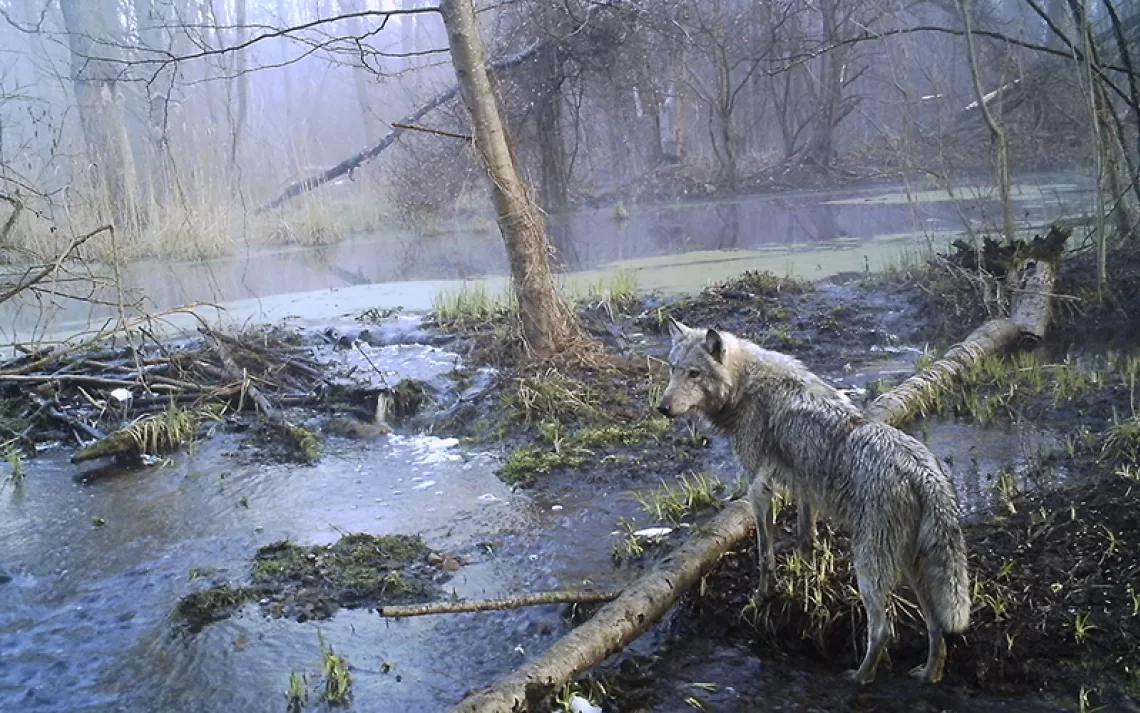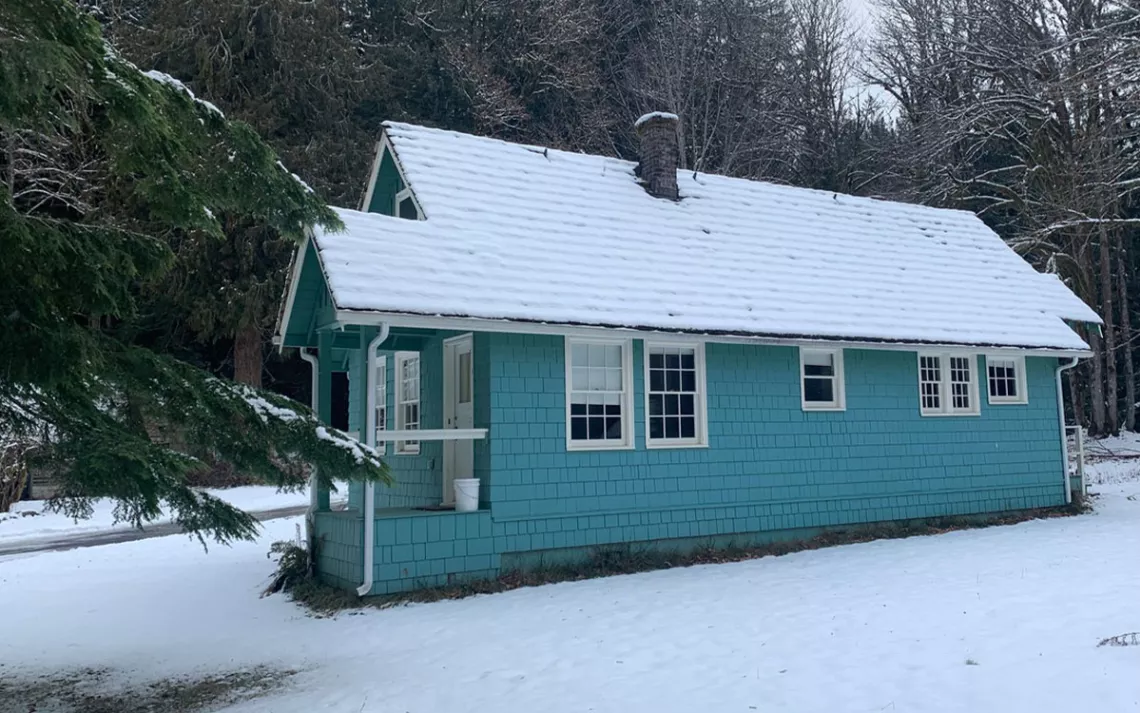South Carolina Pulls the Plug on New Nukes
Decision cuts number of U.S. nuclear power reactors under construction in half

VC Summer. Photos courtesy of Friends of the Earth
Two South Carolina utilities have walked away from one of only two new nuclear power projects in the United States, leaving their customers with a multi-billion-dollar tab.
Those utilities' customers have been coughing up an average of $27 a month in their power bills for nearly a decade to fund two new reactors at the V.C. Summer nuclear plant near Columbia. The first unit was supposed to start producing electricity this year. Instead, they’re both barely a third of the way done, while the price tag has ballooned from roughly $10 billion to about $16 billion.
On Monday, four months after the prime contractor at the plant filed for bankruptcy, the utilities that commissioned the reactors threw in the towel.
“We simply cannot ask our customers to pay for a project that has become uneconomical,” Lonnie Carter, the CEO of minority owner Santee Cooper, said in a statement.
The decision cuts the number of new U.S. nuclear power reactors under construction in half. It’s another blow to an industry that still provides about 20 percent of electricity nationwide, but is struggling to stay afloat financially.
The 2,200-megawatt Summer project and a two-unit expansion of Georgia Power’s Plant Vogtle were the first commercial nuclear reactors ordered since the Three Mile Island nuclear accident in 1979—and like the South Carolina reactors, the Georgia units are years behind schedule and billions over budget as well.
“This project, along with Vogtle, were considered the centerpieces of the so-called nuclear renaissance,” said Chris Carnevale, the coastal climate and energy manager for the Southern Alliance for Clean Energy. “This is a very obvious example of how the promises of the nuclear renaissance are not materializing the way they were sold.”

While 99 reactors are running in 30 states, only one has come online since the 1990s. Cheap natural gas is undercutting the industry in states where nuclear plants sell the electricity they produce on deregulated markets. Nuclear plants have been closing or seeking state subsidies as a carbon-free power source.
The Georgia and South Carolina projects used a new Westinghouse design that was supposed to be safer, cheaper, and easier to build than previous reactors. But Westinghouse, which was also hired to build the new units, ran into multiple delays and lost billions in the process, eventually filing for bankruptcy in March.
Meanwhile, utilities’ projections of future electricity demand, a key part of their case for building new reactors, have grown increasingly obsolete in light of increased energy efficiency. The spread of cheap renewables has made nuclear even less attractive, Carnevale said. When the state-owned Santee Cooper did a new analysis, it decided the costs could no longer be justified. Without its junior partner, majority owner SCANA had to pull the plug as well.
SCANA executives told the South Carolina Public Service Commission on Tuesday that they would seek another rate increase to recover the company’s stranded costs. The company said it would try to offset those costs by reaching a settlement with the Japanese industrial giant Toshiba, Westinghouse’s corporate parent, and by stretching the costs out over as much as 60 years. But the request is “a slap in the face” to ratepayers, Carnevale said.
“They’re raising rates now, and they’re keeping the option of raising rates at a later date,” he said. All told, ratepayers and investors have spent about $9 billion on the unfinished reactors, he said; about 18 percent of a typical SCANA customer’s bill goes to pay for the unfinished reactors under a state law that allowed the utilities to charge customers in advance.
Commissioners complained they were blindsided by the decision to cancel the project and bemoaned the loss of thousands of high-paying construction jobs that will follow.
“This is going to shatter lives, hopes, and dreams in Fairfield County and the state of \South Carolina,” PSC Chairman Swain Whitfield said. “It’s going to be devastating.”
But Susan Corbett, the former head of the Sierra Club’s South Carolina chapter, said the commission ignored repeated warnings about the financial risks of the Summer reactors and approved every rate hike to fund the project.
“They are supposed to be protecting the public’s interest, and they completely shirked their responsibility here,” said Corbett, who now chairs the Sierra Club’s national nuclear-free campaign.
Friends of the Earth and the Sierra Club have asked the commission to block any further charges to ratepayers. Tom Guild, a lawyer representing the groups, said South Carolinians already have the third-highest electric bills in the United States, and shouldn’t have to spend any more.
“The commissioners find themselves now with lots of angry ratepayers pointing fingers and wondering how they let these things go on as long as they did,” Guild said.
The agency has set an October hearing on the request. Guild said he hoped the commission would require SCANA to help modernize the state’s power mix with more utility-scale solar power and by helping residents weatherize their homes.
“We’re going to try to claw back as much of the sunk costs that have been passed on to ratepayers as we can,” he said.
V.C. Summer’s one operating reactor, which went online in 1984, is still running. Georgia Power has said the work at Plant Vogtle, near Augusta, will continue. Atlanta-based utility conglomerate Southern Company, which owns Georgia Power, announced last week that it would take over management of the project from Westinghouse.
 The Magazine of The Sierra Club
The Magazine of The Sierra Club







